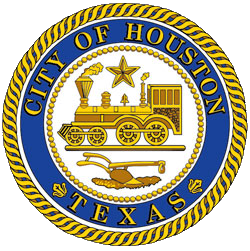Mayor Sylvester Turner is proud to announce the Urban Prairie Resiliency Project, a collaborative endeavor that will further the city’s resilience goals to be prepared for, to withstand, and to bounce back from the shocks and stresses caused by hurricanes and floods. The project will integrate green storm water infrastructure and restore the urban prairie ecosystem within New Hope Housing and Star of Hope’s Cornerstone Community Campus, an affordable supportive housing development.
The Mayor’s Office of Resilience, in accordance with the Resilient Houston Strategy and the Complete Communities Initiative, is partnering with New Hope Housing and Star of Hope to restore up to 8 acres of prairie of the Cornerstone Community campus. By restoring the tall grass prairie ecosystem, whose wetlands act as “nature’s kidneys” for the Houston region, the Urban Prairie Resiliency Project will serve as an example of a neighborhood adaptation project which will create wildlife habitat and outdoor educational and recreational space while improving storm water retention, water filtration, and groundwater replenishment.

“Hurricane Harvey and the subsequent storms that have impacted our City serve as a continuous reminder that innovative adaptation solutions must be incorporated in order to build a more resilient Houston,” said Mayor Turner. “In 2019, I released the Incentives for Green Development Report encouraging the private sector to take an active role in integration of green infrastructure within the built environment. The result will be a more resilient Campus that provides health and financial services to a vulnerable population, affordable housing, and integrates the value of natural habitat to the built environment to create a stronger, healthier, and more resilient community.”
The project will be funded by Wells Fargo and the National Fish and Wildlife Foundation Resilient Communities grant program, along with matching contributions from community partners including New Hope Housing.
“This program continues to demonstrate how local communities like the City of Houston can use the benefits of natural ecosystems to provide for a more resilient future for our nation,” said Jeff Trandahl, executive director and CEO of NFWF. “Each of these 11 grants, made in partnership with Wells Fargo, will work to build resilience locally, to help communities meet future challenges through natural systems and resources, and will benefit habitats for birds, fish and other wildlife.”
Houston is among 11 Resilient Communities Program grants awarded this year, totaling $3.6 million and generating an additional $4.5 million in matching contributions from non-profit organizations and tribes across the U.S to help communities address and mitigate the impact of natural disasters and a changing climate.
“As our city recovers from COVID-19 and Hurricane Harvey, we are finding unique ways to address the chronic stresses caused by homelessness and economic inequality”, said Joy Horak-Brown, president and CEO of New Hope Housing. “Quality affordable housing at the nexus of art, architecture and nature is essential to rebuilding lives and restoring communities.”
The project will be located off Highway 288 and Reed Road within the Cornerstone Community Campus, which features Star of Hope’s Women & Family Development Center and the New Hope Housing Reed affordable housing complex. On any given day, the campus collectively serves 1,200-1,300 people.
A planning and design workshop will be conducted in the coming months to kick off the project with project partners, community stakeholders, and subject matter experts. Project partners will use the workshop to engage with the community and experts to evaluate drainage design, landscaping, expected benefits to the community and ecosystem, workforce development, and education opportunities for local children and families. The result will inform construction which is expected to be completed by December 2023.
The Urban Prairie Resiliency Project advances many of the goals laid out in the Resilient Houston strategy introduced earlier this year by:
- Reducing flooding and minimizing flooding impacts
- Fulfilling one of the 100 green stormwater infrastructure projects called for in the Strategy by 2025.
- Contributing to the 4.8 million tree planting target called for in the strategy by 2030.
- Enhancing carbon capture capacity and contributing to the City’s carbon neutrality goal by 2050.
- Eliminating geographic health disparities through health benefits of ecosystem
- Implementing a project that can utilize and pilot the Houston Incentives for Green Development
“It is important for us to support initiatives like the Urban Prairie Resiliency Project that address the critical needs of our city and position Houston for further growth,” said Laura Jaramillo, senior vice president, community relations manager, Wells Fargo. “As an early supporter of the Mayor’s Complete Communities, we’re excited to see how this project will help enhance and strengthen our native ecosystem and help minimize the impact of climate-related natural disasters in one of our key communities in Houston. We are proud to be working with NFWF on this important national program.”
“I thank the National Fish and Wildlife Foundation, Wells Fargo, and local partners for making it possible to begin making the city more resilient for all Houstonians and hopes that the partnership model established in the Urban Prairie Resiliency Project can serve as a scalable model for future implementation of resilience projects in Houston,” said Mayor Turner.

About Resilient Communities
In 2017, the National Fish and Wildlife Foundation and Wells Fargo Foundation created the Resilient Communities program to boost community capacity to prepare for impacts associated with coastal sea level rise, water quantity and quality issues and extended wildfire seasons. The program empowers communities to advance and employ natural features like urban tree canopies, wetlands, healthy upstream watersheds, resilient shorelines and forests that provide natural protections against extreme weather events. The Resilient Communities program prioritizes inclusion and aiding historically underserved, low- and moderate-income communities.
A detailed listing of the 2020 grants made through the Resilient Communities program is available at https://www.nfwf.org/programs/resilient-communities-program.
For more information, contact Chief Resilience Officer, Marissa Aho — https://www.houstontx.gov/mayor/chief-resilience-officer.html
